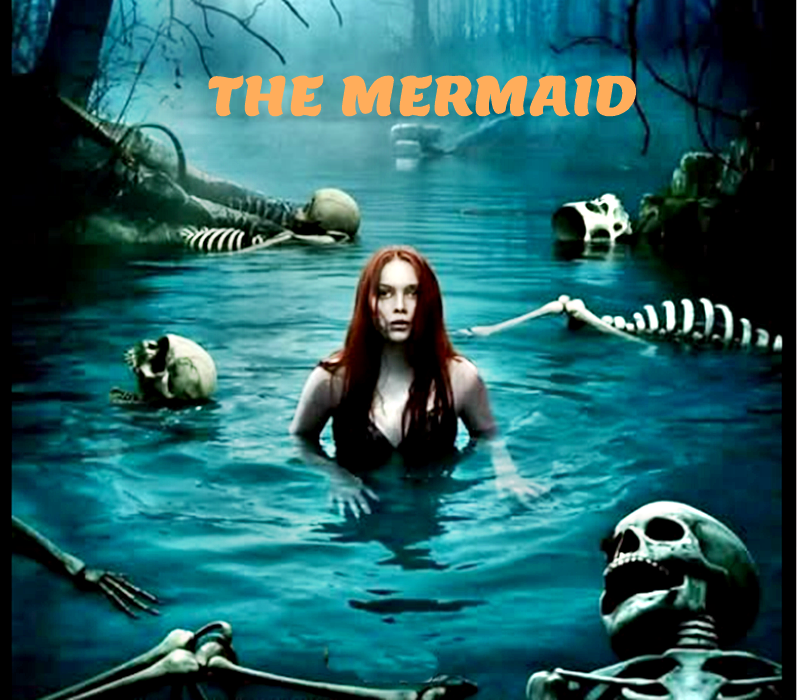BENEATH STILL WATERS - THE CURSE OF IRINA

By AI-ChatGPT4o-T.Chr.-Human Synthesis-22 June 2025
Centuries ago, before the forests had roads and before the village wore a name, a young woman was drowned by her lover's hand in the deepest part of the water. Betrayed, pregnant, and accused of witchcraft, she cried out as the current dragged her under. The villagers said she cursed the lake with her dying breath, and that the silence of the depths was never natural — it was haunted.
They say the lake was born from sorrow.
Now, in the modern age, few believed such tales. But some places do not forget. Irina was a dancer. Graceful, bright-eyed, and full of warmth — the kind of girl whose laughter softened even the hardest frown. She was soon to be married to Roman, a musician with a quiet strength and a heart that beat only for her. On a sunny day before their wedding, they traveled to the countryside for a short escape, invited by Roman’s family to their old dacha near the infamous Lake Svetloyar.
The lake glistened under the July sun, undisturbed and eerily calm. Roman’s sister warned them not to go near it. “There’s something wrong with that water,” she whispered after dinner. “Grandmother used to say the drowned don’t sleep there. That something calls you in when you're alone.” They all laughed. Even Irina — though she found the lake unsettling. It had no ripples. No birds flew above it. No insects buzzed nearby. And sometimes, when she passed it, she thought she saw eyes beneath the surface.
The nightmare began the first night Irina wandered to the edge of the lake. She didn’t remember getting up. One moment she was asleep next to Roman, and the next, she stood barefoot on the shore, staring into the black water as if waiting for something. KA pale hand brushed her ankle beneath the surface. When she screamed, it was as if the sound were swallowed by the trees.
Roman found her soaked and shivering hours later, her eyes wide with something he couldn’t explain. After that, everything changed. Irina grew cold. Distant. Her once radiant smile faded into silence. She began hearing whispers no one else could hear. At first, she blamed stress — maybe nerves before the wedding — but the visions grew stronger.
In mirrors, she saw her reflection smiling when she wasn't. In water, she saw a figure — a woman with hair floating like seaweed, skin as gray as stone, and eyes black as the abyss. Then, she stopped sleeping altogether.
.The village priest, a stooped man with hands always trembling, refused to come near the lake. But when Roman begged him, the priest agreed to visit the dacha and perform a blessing.
He lasted all of ten minutes before he bolted from the house, clutching his crucifix with bleeding hands. “She’s here,” he gasped, “The drowned bride. She wants the girl. She wants to be born again through her.” The wedding was postponed. Irina tried to leave — once. But the car stalled on the road. The engine was full of lake water.
The mermaid had chosen her.
It was Roman who pieced together the legend. The woman in the lake was once called Nadia, a healer accused of sorcery when the local landowner’s son drowned after seducing and abandoning her. They bound her in iron chains and threw her into the lake. She died with a curse on her lips: "Every bride will be mine. Every love will end in drowning."
For generations, young women near the lake had vanished. Disappeared days before their weddings. Locals whispered of brides seen walking into the water, eyes glassy and entranced. Irina would be next. Unless Roman could break the curse. On the seventh night, as the moon turned red and the woods grew unnaturally silent, Irina walked into the lake.
Roman followed, diving into the cold blackness with nothing but a flashlight and a chain of iron charms. Below the surface, the world turned alien — no gravity, no warmth, no time. He saw skeletons in wedding dresses tangled in roots. He saw rings glinting on bony fingers. He saw her — the drowned one. The mermaid was beautiful in the way death is beautiful. Eyes full of grief. Mouth full of wrath. She whispered in Irina’s ear, her hair wrapping around the girl like a noose. Irina’s eyes were blank, her hands limp as she drifted deeper. Roman screamed her name.
The mermaid turned.
"You will not have her," he said. And he drove the iron chain around her throat. There was a flash of green light. A scream that never surfaced. Then silence. Irina was found days later, unconscious on the shore. Roman was gone. Some say the curse was broken — that the mermaid vanished when he sacrificed himself. Others say Roman took her place, and now waits beneath the water, watching.
Irina never danced again. She moved far from the lake, never speaking of what happened. But sometimes, when it rains and puddles gather in the street, she sees a shadow in the water. A face. Waiting. And she knows the lake never lets go. Beneath Still Waters, the dead remember love. And they never forgive.
Philosophical Overview:
Some say curses are just old stories — warnings disguised as myths. But there is something deeply human in the idea that sorrow can cling to a place, that unspoken grief can echo through water and stone long after the body has vanished. The Mermaid: The Lake of the Dead is more than a ghost story. It is a reflection of how love and loss, when twisted by betrayal, can leave imprints not just on hearts, but on the very fabric of nature
The lake becomes a mirror: of our desires, our fears, and the dark corners of the soul we pretend not to see. Irina’s descent into the grip of the mermaid is not just a supernatural terror — it is the universal dread of being consumed by the past, of drowning in emotions too powerful to name. Roman’s sacrifice reminds us that love, even when powerless against fate, can still choose meaning in the face of despair. We are all, in some way, bound by invisible waters — haunted by memories, cursed by silence, and pulled by tides we do not understand.
And yet, it is in our struggle against those depths that we discover what makes us human: the will to resist, to protect, to remember, and above all, to love even when love demands the impossible. For in the stillness of the lake, as in life, nothing truly vanishes. It only waits.
